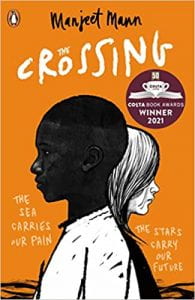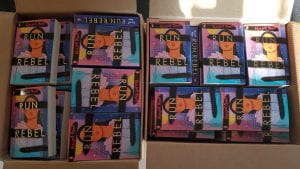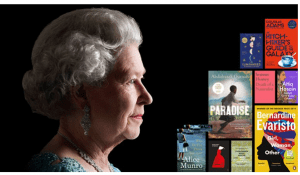‘The Crossing’ by Manjeet Mann
Our Y9 and Y1 0s had a reading challenge for the Easter holidays which they enthusiastically accepted. Every student was given a copy of Manjeet Mann’s second YA verse novel ‘The Crossing’. This powerful, engrossing novel is quick to read but deeply moving and relevant to our times.
0s had a reading challenge for the Easter holidays which they enthusiastically accepted. Every student was given a copy of Manjeet Mann’s second YA verse novel ‘The Crossing’. This powerful, engrossing novel is quick to read but deeply moving and relevant to our times.
Both year groups had discussions of the book with their tutors during tutorial periods and I discussed the book with the 3rd and 4th Form boys from the Raglan House. They found it a very emotional read and a number of them particularly liked the style finding the way the two narrative voices of Nat and Sammy overlap made them feel the connection between the two more strongly. For less keen readers, who may not pick up a book as a leisure activity, this style of book was appreciated – they enjoyed the speed with which they turned the pages and the lack of detailed description helped them focus on the plot and experience of the characters.
Here are a couple of short reviews by our students:
The Crossing’ by Manjeet Mann has enlightened me on the subject of death, something which is scarcely talked about. It has a heart-breaking narrative and the poems assist in creating this effect. The way in which Manjeet makes every word powerful is amazing, and every action impacts the characters and their future.
Miles wrote a reading response poster unprompted by his English teachers as the book had a big impact on him.
My blurb:
A troubled life with dreams of swimming the channel and a refugee wishing for a bright future, by chance they meet and form a strong bond.
Will a bright future be possible?
Will the channel be swum successfully?
The book came with a sense of inspiration and happiness at hopeful times, for example when Sammy reached Calais. However, sadness was also a key theme in the book, when Sammy lost his life and Natalie was mourning the death of her mother. The story does not remind me of any previous books, as the ending of death is not common. Because the book was so unique I found it thrilling.
 One of our students enjoyed ‘Run, Rebel’ and ‘The Crossing’ so much that currently she is only reading verse novels and has worked her way through our whole collection. She is particularly keen on the verse novels of Sarah Crossan (a previous visiting author who enthused our students about reading). For more recommendations of verse novels have a look at the library padlet on verse novels.
One of our students enjoyed ‘Run, Rebel’ and ‘The Crossing’ so much that currently she is only reading verse novels and has worked her way through our whole collection. She is particularly keen on the verse novels of Sarah Crossan (a previous visiting author who enthused our students about reading). For more recommendations of verse novels have a look at the library padlet on verse novels.
Verse Novels – why I like them by Grace (Y9)
- They are written in poem-like verses making them different from other fiction novels.
- It always surprises me that the author is able to express/write such a deep and meaningful story in so few phrases.
- (Despite being in short verses.) The reader is still able to understand/picture every scenario fully.
- The word choices are very specific, which gets the point the author is trying to prove very efficiently.
- They’re just a quick read.
- They are very easy to understand.
- You can expand your thinking because it’s different.
- It’s always good to try new things.
